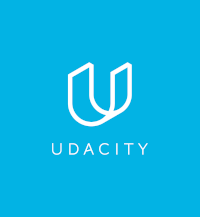| Small Data or Big Data, Your Choice |
| Written by Sue Gee | |||
| Friday, 11 August 2023 | |||
|
In this digital age we are collecting data at an unprecedented rate and the career opportunities in this field continue to expand. Nanodegrees and Courses from Udacity's School of Data Science start again on August 16th so time take another look at what's on offer. A new short course on Small Data caught my attention, raising questions about how this differs from big data. Udacity recently launched a set of Short Online Courses designed to teach practical, job-ready, skills in less than a month. We have already explored three of them related to Artificial Intelligence. This time the topic is data and again we have a line up of three. Disclosure: When you make a purchase having followed a link to from this article, we may earn an affiliate commission. There was a time when we'd put air quotes around "big data" because the concept seemed new. Now we take massive data sets for granted. They are what provide fodder for machine learning and in turn fuel developments in Artificial Intelligence. So what is Small Data and why has Udacity developed a new course about it? What will you learn by following the course and what pre-requisites do you need? According to Udacity's co-founder, Sebastian Thrun: Small data is a really interesting topic because we now these universally trained broad AI systems that don't quite know what your task is and you might not have a billion data points on your task. It might just have a small data set, yet. He goes on to say that it is possible to take the same large models used with massive datasets and tailor them effectively towards a specific task for which you only have a small amount, but still enough, data. Small Data is a 1-month course that is at intermediate level and requires learners to have intermediate Python and Machine Learning knowledge Graduates of the course will be able to:
The course based around a project with the title Transfer Learning and Data Generation Solutions. In this project, the learner will start with 2 small datasets and apply the appropriate technique to solve specific problems. One small dataset will require the learner to utilize transfer learning to categorize data from a relatively small dataset correctly. The other dataset will require the learner augment the small dataset with synthetically generated data suitable for developing a robust machine learning model. The first module of supporting lesson content introduces the concept of Small Data. The next is on Machine Learning Techniques for Small Data and covers how to classify and describe small data, comparing and contrasting it with big data, relate the concept of small data to real-world situations and outline the various solutions available. After this comes a module on Transfer Learning which culminates in creating a tranfer learning solution. The final module on Synthetic Data covers differentiating between synthetic data and fake data, evaluating whether synthetic data is appropriate for a scenario, contrasting synthetic image data and synthetic tabular data before creating a synthetic data solution. The other two 1-month short courses are related to Big Data. Both of them are also part of the Data Engineer Nanodegree, which we have previously outlined in detail and which is currently billed as one of the most popular programs on Udacity. The newly available Cloud Data Warehouses is at intermediate level requiring experience in relational database design, SQL, basic dimensional modeling, Amazon Web Services basics, and Python. Estimated to require a month, learners will build warehousing skills, gain an understanding of data infrastructure, and build on the cloud using AWS. In the course project, learners act as a data engineer for a streaming music service to build an ELT pipeline that extracts data from S3, stages it in Redshift, and transforms it into a set of dimensional tables for an analytics team to find insights into what songs their users are listening to. Those who complete it will be ready to apply the following skills:
Spark & Data Lakes is also at intermediate level, requiring intermediate knowledge of Python and SQL and AWS basics. In the course of a month, learners will build a data lake on AWS and a data catalog following the principles of data lakehouse architecture. They will learn about the big data ecosystem and the power of Apache Spark for data wrangling and transformation. They’ll work with AWS data tools and services to extract, load, process, query, and transform semi-structured data in data lakes. In the course project learners will act as a data engineer for a team building a data lakehouse solution for sensor data that trains a machine learning model. They will build an ELT (Extract, Load, Transform) pipeline for lakehouse architecture, load data from an AWS S3 data lake, process the data into analytics tables using Spark and AWS Glue, and load them back into lakehouse architecture. Those who complete it will be ready to apply the following skills:
These are sought-after skills and Udacity helps learner to succeed with services customized for their needs along the learning journey including timely personalized feedback and on-demand help. More InformationRelated ArticlesAI Short Course New From Udacity Data Scientist or Data Engineer? Choose Your Path On Udacity To be informed about new articles on I Programmer, sign up for our weekly newsletter, subscribe to the RSS feed and follow us on Facebook or Linkedin.
Comments
or email your comment to: comments@i-programmer.info |
|||
| Last Updated ( Friday, 11 August 2023 ) |




